Do we still need to know things when AI assistants already know them? Do we still need teachers, or can AI replace them? We explored these and other timely questions with Maria-Araxi Sachpazian, Lecturer at CITY College, University of York Europe Campus, and uncovered what remains essential in education, no matter how technology evolves.
With over three decades of experience in language education, teacher training, and academic leadership, Maria-Araxi Sachpazian leads courses at CITY College on the methodology of language teaching and evaluation and design of teaching materials.
CITY College, University of York Europe Campus, offers a wide range of undergraduate and postgraduate programs. Armenian applicants benefit from tuition discount system while gaining access to a high-quality British education through studies based in Thessaloniki, Greece.
In addition, the Pan-European Executive MBA program, jointly offered by the University of York’s European campus CITY College and the Faculty of Economics and Management at the University of Strasbourg, provides Armenian applicants with the opportunity to receive high-quality British and European education and two MBA diplomas from York and Strasbourg Universities, while continuing to live, work, and study in Armenia.
In our interview, Maria-Araxi Sachpazian also shares how today’s learners engage with knowledge, what truly supports deep and lasting understanding, and why teaching must remain rooted in creativity and human connection.
- All fields are undergoing significant transformations due to the rise of AI. I am curious – what general changes have you observed in the field of education and teaching?
- I think we are living in a time of paradigm shift. We need to redefine what it means “to know”. Nowadays, the idea of gaining knowledge by opening a textbook, highlighting, underlining, taking notes, is seen as a waste of time. Most of the youth thinks that because Siri knows, Gemini knows, AI-based assistants know, they should not bother themselves to learn.
Recently, I had a discussion with my students. I asked, “How are you going to vote in a couple of years from now? You will not be aware of historical context, you will not know your cultural heritage, your history, your origins”. And the answer was: “We will ask AI.” But are not you afraid of being misled by people with vested interests?
The more we discussed, the more we got to the conclusion that the essence of knowing is the ability to think and to think critically. Without that, everything else is secondary.
That is why I told them: “We should have a variety of sources at our disposal – textbooks, articles. We compare, we cross-check, we ask questions such as “Who is right?”, “What is their agenda?”. This process is what leads us to more reliable answers. Yet more and more, I hear the same response: “I do not need to do that”, “My computer does it for me”, “My phone has all the answers.”
And that is sad. I think we are at a crossroads and these crossroads affects us as teachers. We need to figure out how to inspire the new generation, and how to help students find their place in a world where memorizing or truly knowing is becoming rare. But every piece of real knowledge – when deeply understood – is extraordinary.
- That was a really interesting example of how generations are changing. You mentioned that teachers need to equip themselves to inspire students – to help them understand that learning remains essential, regardless of the tools available. What advice would you give to teachers to help them achieve that?
- Every generation is different, yet each year we are tempted to put a new label on them and say that the new cohort is lazy. Labeling does not help us – it is not a constructive tool for our profession and our mission. We might start saying that they do not get it or that they are the problem. But they are not the problem. We are the ones who are confused. We have been hit by a storm – and young people are simply trying to find ways to cope. We, as teachers, are also trying to adapt.
First of all, we need to stay relevant. And to do that, we need to embrace technology. We need to understand what it is, what are its limitations, and how it can be used productively. And after gaining our own experience with these tools we need to offer our students a working model of how the technology could be used in a productive way.

Photo: CITY College
Most importantly, we have to stay in love with what we do. Just the other day, I was talking to a student about lesson planning and the student asked why to do the lesson planning by ourselves if AI can now generate it in a minute. Yes, it can. But that is not the point.
One of the key reasons we still want teachers to plan their own lessons is because they know their students. Most English language teaching books include a sample lesson plan but that is just a template, a starting point. If you follow a generic plan, your lesson will only be half as inspiring as it should be. But if you gather ideas from different sources, link them to yesterday’s lesson, tomorrow’s goals, and your specific group’s needs – then you can create something truly meaningful.
When we stop doing that and rely too much on shortcuts – we lose the spark. The passion fades. And when that happens, teaching becomes mechanical and eventually, uninspiring.
- Are AI-based tools already being widely used in lesson planning, assessment or other areas of teaching? What are your observations, and what potential risks do you see?
- When it comes to student assessment, we are still far from fully relying on AI. And even if there appear tools that would offer customizable grading options, I would still want to double-check how the rubric was applied and adjust grades slightly based on individual or contextual factors.
There is also a contradiction: if I use AI to grade papers but tell students not to use AI to write them, that feels unfair. Writing an academic paper is a high-level human activity – it involves understanding, analysis, and engaging an audience.
At the same time, there are useful AI tools. For instance, I use Text Inspector to check readability. If a text is meant to be B2 level but comes out as A2, I know it needs to be more complex. These tools help with material design.
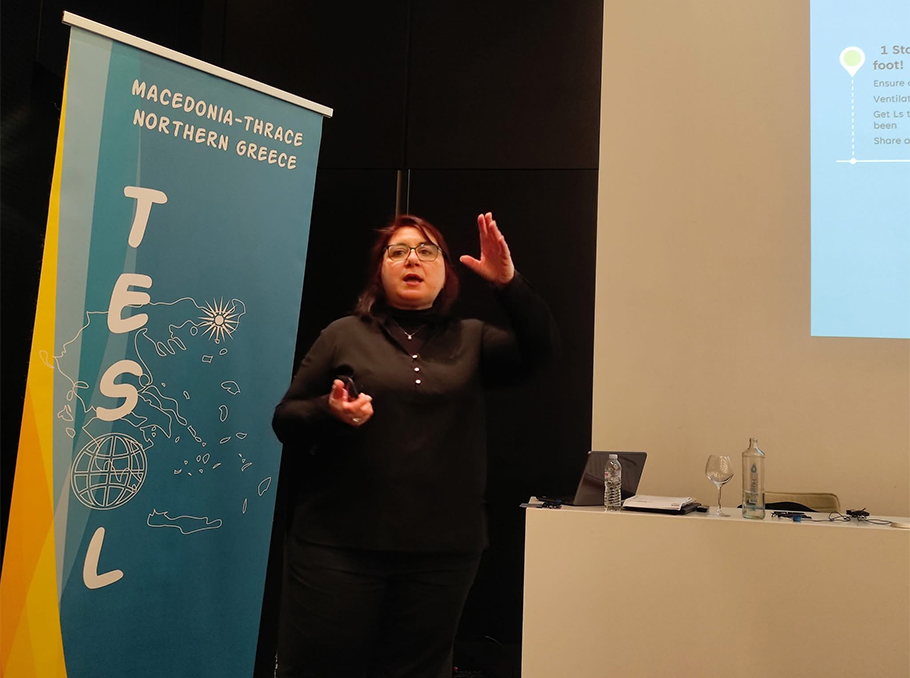
Photo: CITY College
In Greece, we recently saw an AI assistant being used to guide candidates through training and testing. It collects data, flags errors, and helps students prepare. That sounds great, but long term, we are feeding these systems huge amounts of data – and they are getting smarter. In a few years, AI could assess speaking exams or even lead entire lessons.
That is unsettling and I worry people might eventually think studying is unnecessary, that AI can do it all, and teachers are outdated luxuries.
It reminds me of the 60s and 70s, when teacher-less English lessons were introduced – originally for shopkeepers or travelers. Now it feels like teachers themselves are under threat. Will AI do all the assessing? Will it become the only point of contact for learning?
What I know is that human presence still matters. When a student is stressed, I can say, “Take a breath. Have some water. Let’s try again.” A machine cannot do that.
And finally, we must be careful not to overemphasize assessment as we truly learn through sustained engagement with our material – not through constant testing.
- That brings me to my next question: are there core principles or essential elements of teaching that you believe will remain unchanged, no matter how advanced technology becomes? What is that 'human element' that will always be vital in education?
- The first core principle is that learning is emotional. It is not just a cognitive process – we learn better when we like the teacher, enjoy the group, feel engaged by the material, and care about the topic. That emotional connection will always matter.
Another key principle is that learning cannot be done for someone. I can teach, but the learning has to come from the student. I cannot replace them or take responsibility for their part. I meet them halfway, and they have to do the same. Moreover, it is not only half the process: the other half is effort and motivation.
Another key principle is caring. We need to love our students – or at the very least, not reject or label them.
Teaching is – and will always be – a creative act. And it only remains creative if teachers are creative. If we hand over that creativity to the coursebook and just follow the units and exercises, then there is no personal touch left. And without that human touch, I can easily be replaced by an automated platform.
The real question is: what can I do to make this lesson more engaging, more meaningful, more alive for these exact learners and in this exact moment?
- I recently took part in a discussion at one of Armenia’s leading private schools, where teachers observed an interesting trend: pupils seem to retain information better when it is presented on a screen rather than explained verbally. They appear more focused and attentive. That is just one example, but I am curious – have you noticed similar patterns with today’s learners? And how should teachers adapt their methods to meet these transforming learning preferences?
- Back in the 1990s, when I started teaching, the VAK theory (visual, auditory, kinesthetic) was very popular. There was a strong push to categorize learners by type, but we now know it is not that simple.
That said, many students today are highly visual learners. We live in a world of screens. Even basic tasks, like buying water from a vending machine or making a phone call, now involve visual interfaces. This environment naturally shapes how students process information.
Auditory learners, on the other hand, often need more support. Listening without visual cues and identifying key points is a high-level skill. Personally, I struggle to follow spoken information unless I take notes. I often turn those notes into visual maps, which help me structure and retain what I have heard.
Today’s students are surrounded by visual input and navigate digital tools with ease but they do not learn well just by being told. If they experience something, if it connects with them emotionally, they remember.
So yes, teachers need to adapt. In language education, for instance, publishers now offer digital platforms, e-books, interactive whiteboards, and online workbooks. These tools bring lessons to life in a visual and engaging way.
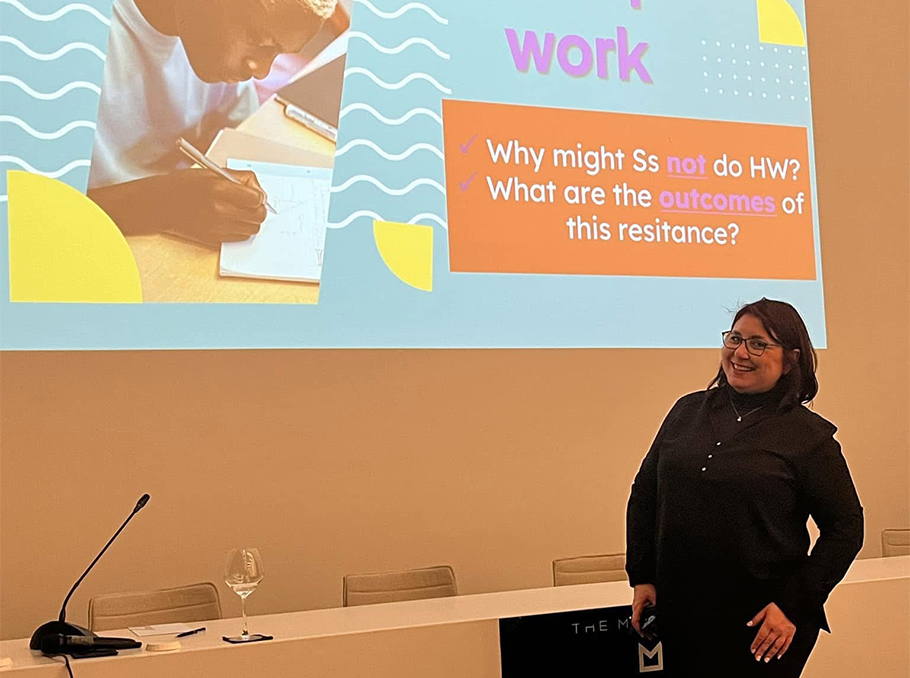
Photo: CITY College
Use whatever helps: interactive whiteboards, posters, visuals, PowerPoint, Prezi – anything that makes content vivid and relevant. I always tell my teacher trainees: design your own materials but also create a PowerPoint version. It simulates the interactive classroom and makes the course come alive visually and systematically.
- There is an ongoing debate among educators about finding the right balance between digital tools in the classroom and traditional ways of teaching. In your view, what does a healthy balance look like?
- Switch off the whiteboard! It does not need to be on for the entire lesson. Sometimes, we need to switch off the screen and simply connect.
One of the most valuable things we can offer is space for discussion. I know time is limited and lectures must cover certain content, but deeper, more lasting learning often comes from dialogue – not bullet points. Memorized facts may fade; engaged conversations tend to stay.
Another essential point is creating opportunities for pair and group work – especially in language learning. The classroom must be a safe space where students can experiment, take risks, and produce language. That is how real learning happens.
The challenge today is that students often “screen-storm” instead of brainstorm – they immediately reach for their phones, search, and read a summary. I tell them, “I do not want what they say. I want what you think.”
And that is often the moment they pause and realize they have not truly thought about it – and that is where real learning begins.
Gaiane Yenokian talked to Maria-Araxi Sachpazian
















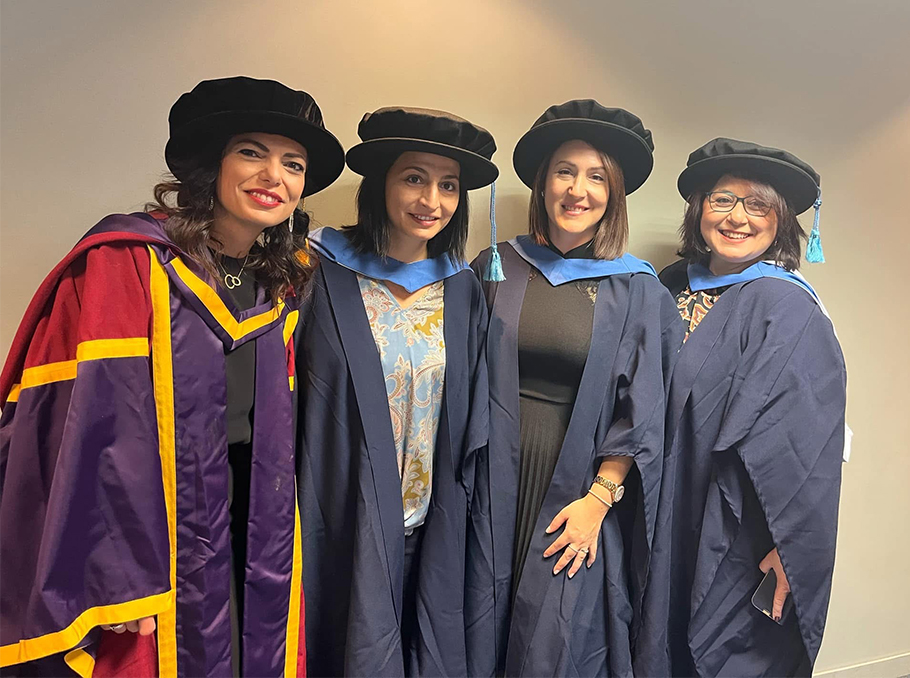


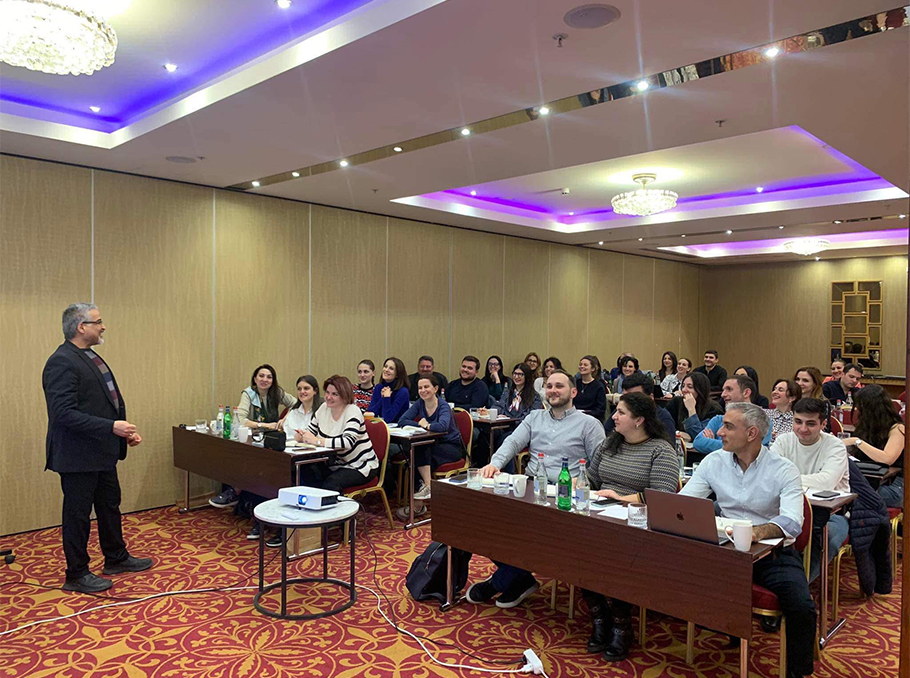
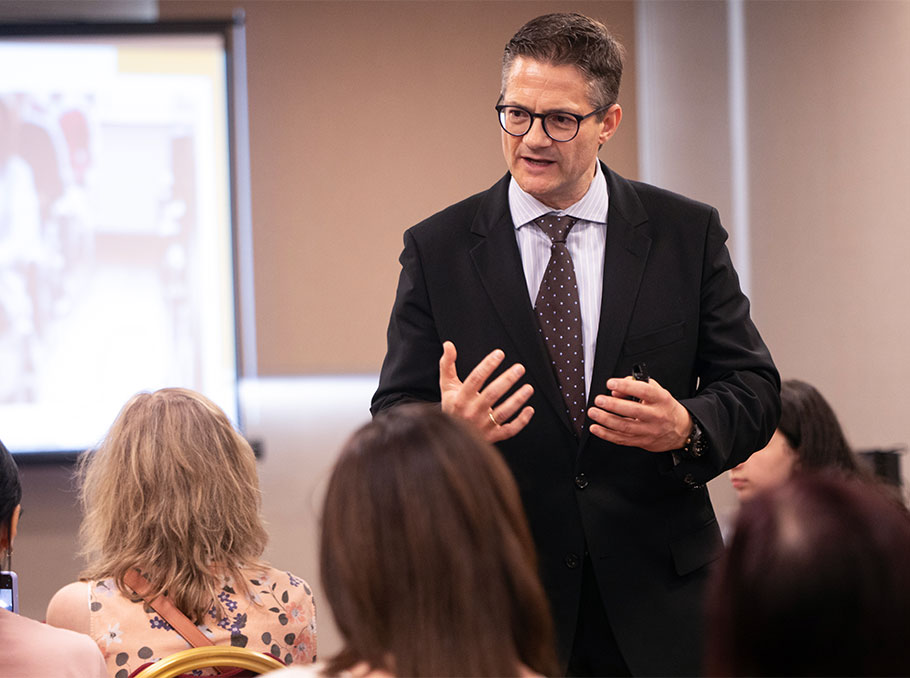








Comments
Dear visitors, You can place your opinion on the material using your Facebook account. Please, be polite and follow our simple rules: you are not allowed to make off - topic comments, place advertisements, use abusive and filthy language. The editorial staff reserves the right to moderate and delete comments in case of breach of the rules.